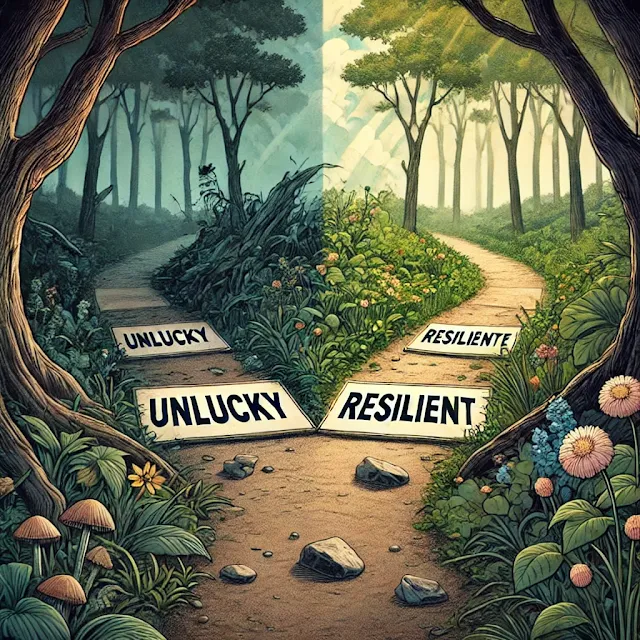Why Your ‘Bad Luck’ Isn’t What You Think
A young 15-year-old girl came to me one day and said, “Mitra, you know, I think I am unlucky. Everything I try to do gets stuck somewhere or another. I tried to start helping my mom with her business, and suddenly, due to some problem with local norms, she had to shut it down. Then, another time, I wanted to help my friend with his project, and he fell sick right before his project presentation. I can’t help but think that every time I try to help somebody, I bring bad luck with me.”
After a quick pause, she added, “I think something is wrong with me. It is either my karma, or I’m cursed. But something is wrong for sure.”
During our conversation, I tried to dig a little deeper and understand what went behind this thought. To my horror and astonishment, her belief—that she was cursed—was deep inside her. It was almost like her identity.
Somewhere down that conversation, I realised I still couldn’t determine the trigger for this conditioning. Usually, someone close—a relative, parent, teacher, or friend—says something and those words stick with you. But in this girl’s case, there was absolutely nothing. It was quite the opposite; everybody around her made her feel special. She was the star at school and in the family. Everybody adored her and loved her. Labelling her as someone who brings bad luck was simply non-existent.
As I dug deeper, I realised this was her own belief. She was personalising (a cognitive distortion).
The Trap of Personalization
This girl wasn’t unlucky. But she believed she was because she saw herself at the centre of every failure. She blamed herself for things she had no control over. And isn’t that something we all do at times?
When things don’t go our way, it’s easy to think, “It’s me. I’m the problem.” Over time, this thought can become part of how we see ourselves. It becomes a story we tell ourselves—a story that holds us back.
But what if we had better stories? What if we could see failure for what it really is: a part of life, not a verdict on our worth?
What History and Autobiographies Teach Us
This is where history and autobiographies come in. They’re not just about dates and events; they’re about people. Real people who messed up, struggled, and still managed to make something extraordinary out of their lives.
Take Thomas Edison, for instance. The man failed a thousand times before inventing the light bulb. Did he ever say, “I’m unlucky”? No. He said, “I have not failed. I’ve just found 10,000 ways that won’t work.”
Or consider Abhimanyu (from the Mahabharata). He could have let fear and adversity define his life. Instead, he is remembered for his courage, dedication, selflessness, and, most importantly, swadharma.
Reading about these people makes you realise something important: failure doesn’t mean you’re cursed or unlucky. It means you’re trying. And trying is the first step to succeeding.
Luck vs. Effort: The Real Story
Sure, we all love a good “lucky break” story. But let’s be honest—luck is just the cherry on top. The real work happens before luck shows up. It’s the countless hours of effort, the grit to keep going, and the courage to start over when things fall apart.
History and autobiographies provide us with perspective. They show us that even the most successful people have faced obstacles. The difference lies in the fact that they didn’t let those obstacles define them.
Why You Should Pick Up That Biography
When you read about extraordinary lives, you’re borrowing their strength. You start to see that failure isn’t a reflection of your worth; it’s a step toward growth.
So, the next time you feel like life is against you, pick up a biography or a history book. Read about the struggles of the people who inspire you. Let their stories remind you that setbacks are temporary, but resilience is forever.
You’re not cursed. You’re learning. And every failure is just one chapter in the incredible story you’re writing for yourself.
Life isn’t about being lucky or unlucky; it’s about showing up, trying, failing, and trying again. History tells us that. Autobiographies show us how.
So, what’s stopping you? Start reading. Start growing. And start rewriting the story you tell yourself.





